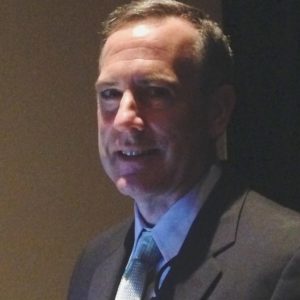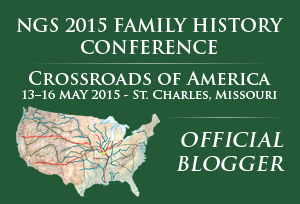SpringBoard, an official blogger for the 2015 NGS Family History Conference, is pleased to offer a review of this Skillbuilding lecture, presented Saturday, 16 May 2015:
S442: Victor S. “Vic” Dunn, CG, “Beating the Odds: Using Indirect Evidence in Problem Solving,” reviewed by Teresa Steinkamp McMillin, CG
 Vic Dunn, CG
Vic Dunn, CG
Vic Dunn’s informative lecture focuses on using indirect evidence to solve genealogical problems. Evidence, “a tentative answer to a research question,” may be accurate or incorrect and it may be direct or indirect. Direct evidence is information that states the answer to a research question, while indirect evidence must be combined with at least one other piece of information to answer the question at hand. Vic reminds us that negative evidence—the absence of what we expect to see under a given set of circumstances—may be important in solving a genealogical problem. For example, if a man is not listed in a certain tax list, it might indicate that he moved away from the area.
Vic walks through five examples of problems that were solved using indirect evidence. The examples include cases where relationship linkages were used and cases where relationship linkages were not available. In the latter, research focuses on the subject’s associates. Vic also presents an example where direct evidence is available, but was obtained from questionable derivative sources.
The talk concludes with a reminder that to correctly solve a problem, all relevant evidence must be correlated; source citations must be complete and accurate; conflicting evidence must be resolved; and a sound conclusion must be written. These are the last four criteria of the Genealogical Proof Standard. The first is to conduct a reasonably exhaustive search, and it appears that Vic has done just that in his examples. Thank you, Vic, for this instructive presentation.
A recording of this lecture may be purchased through Jamb Tapes, Inc.

CG, Certified Genealogist, CGL, and Certified Genealogical Lecturer are service marks of the Board for Certification of Genealogists, used under license by Board-certified genealogists after periodic competency evaluation, and the board name is registered in the US Patent & Trademark Office.